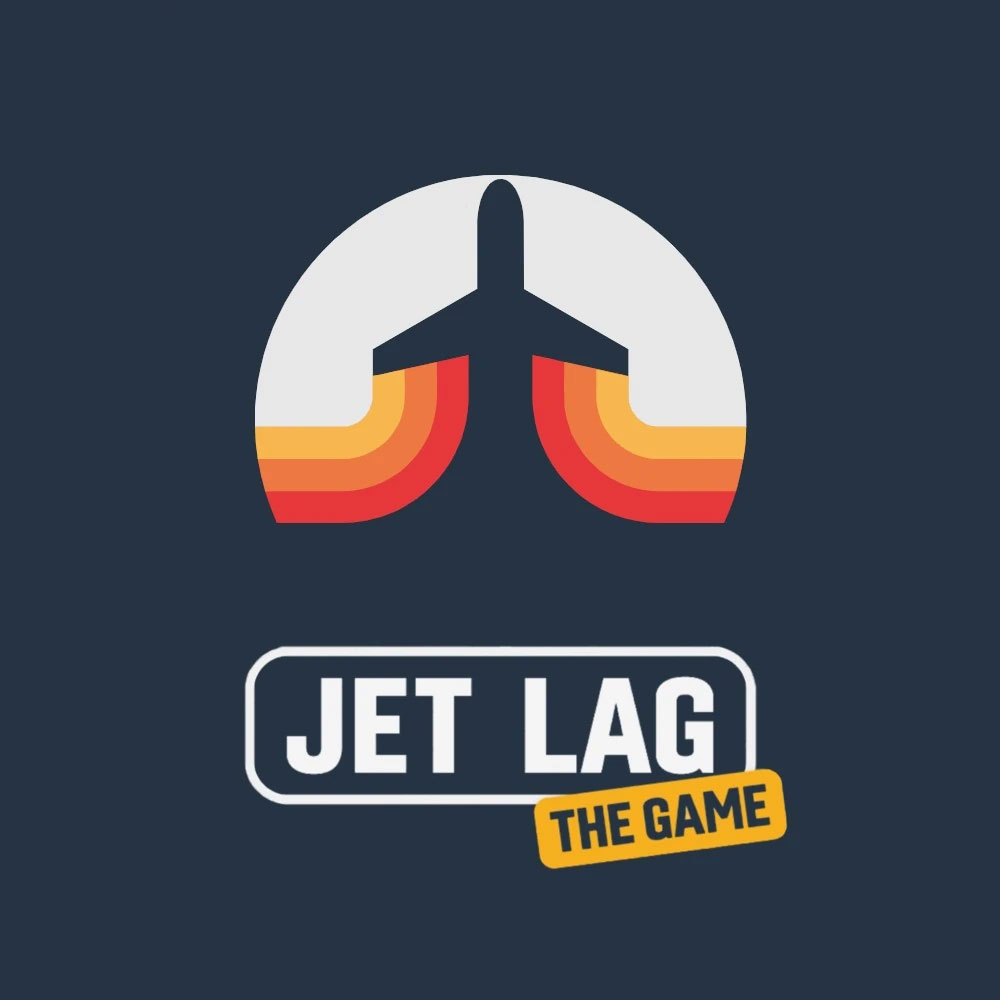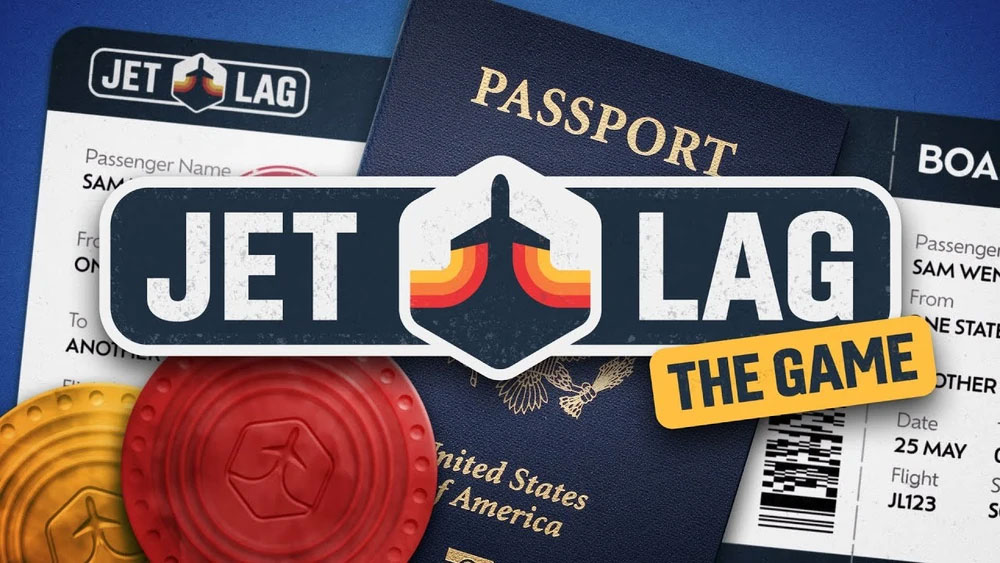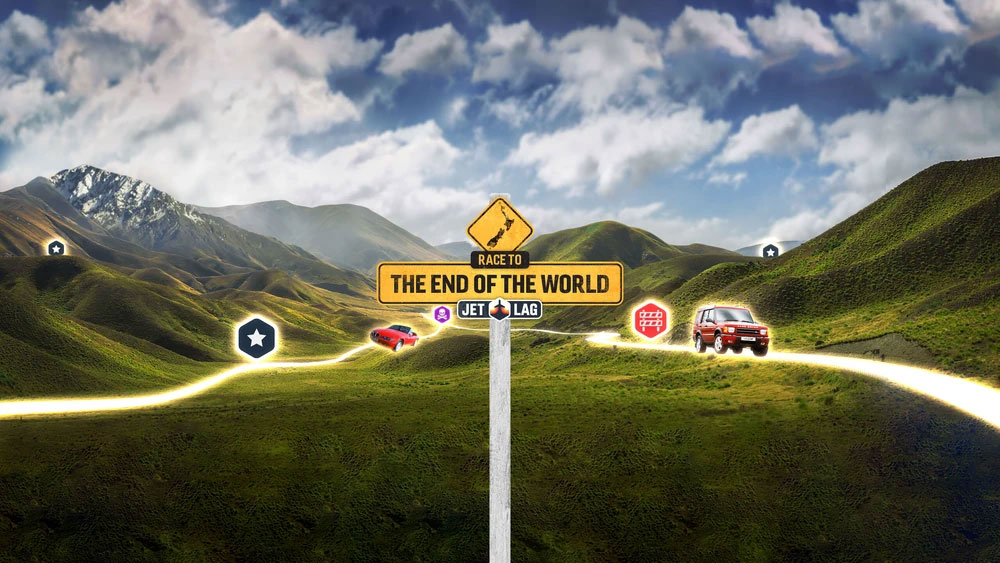
Jet lag is defined by the CDC (Centers for Disease Control and Prevention) as “a temporary sleep problem that usually occurs when you travel across more than three time zones but can affect anyone who travels across multiple time zones.” They define its cause as “a mismatch between a person’s normal daily rhythms and a new time zone.”
Jet Lag: The Game is not any of those things, and the only related thing to the CDC’s definition and cause is that players in the game often feel jet lagged at the end of the game and they are sometimes crossing time zones.
Still, Jet Lag: The Game is inventive and engaging and human and competitive, and much more, and that’s saying a lot coming from me. I don’t generally like reality TV or gameshows and I haven’t watched a travel show that wasn’t featuring a British comedian since Anthony Bourdain’s No Reservations.
I was actually shocked with the self-realization that I enjoyed this show, which is a travel game show of sorts.
Let me explain, the three main hosts, Sam Denby, Adam Chase, and Ben Doyle play games of tag, capture the flag, connect four, and just race, but while many of these games are board games, Jet Lag: The Game is played on a state by state or country by country, or region by region basis, all over the world, depending on the game and season.
So let me give you a quick breakdown of the nine seasons so far produced and released, with a 10th in production and on the way:
- Season 1: Connect 4 Across America
- Season 2: Circumnavigation
- Season 3: Tag Across Europe
- Season 4: Battle for America
- Season 5: Race to the End of the World
- Season 6: Capture the Flag
- Season 7: Tag Across Europe (Again)
- Season 8: Arctic Escape
- Season 9: Hide and Seek Across Switzerland

Now the game, regardless of season is not just the game at face value. Sometimes players or teams need to earn game currency to be able to move on, meaning a train ticket or a plane ticket may have different values. Also earning this in-game currency can also allow teams or players to put up different roadblocks or curses on other players.
No matter what, the in-game currency aspect of the game is what makes this show more than just a travel show and more than just a game show. Challenges to earn in-game currency are predicated on the location, such as season six in Japan had a curse where the cursed player had to set their phone to Japanese.
It’s easy to say it’s a travel show and a game show, but it’s really just compelling content from engaging presenters. Generally speaking, you can start at the beginning of any season. While winning the game is important, these people on camera can be very competitive, they are able to capture the places they have been in beautiful detail with just limited technical supplies, as they are still in the game, and the players themselves are also the camera crew for… themselves!
What they are able to shoot is remarkable given everything that happens once the real production begins. All the prep in the world isn’t going to help your competitive nature when you also have to shoot yourself or your teammate while making sure you can talk into the mic you are either holding or that is attached to you, all while competing to win a game on a real-life scale of towns, counties, states, and countries.

Again, I can’t get over the fact that I enjoy this so much, as I’ve not watched nor have any interested in The Amazing Race or any of those other reality travel shows, and the last thing I watched along those lines is Road Rules season one and two before I thought they started repeating themselves too much.
And this speaks to the hosts, there’s something about Sam, Adam, Ben, and their selected guests and the games they choose to play that’s engaging, entertaining, and authentic in a way that just can’t be recreated or faked.
The guests are equally enjoyable when the game for the season requires a fourth to make two equal teams of two, with the guest teaming with Sam to go against Adam and Ben.
Guests have included Brian McManus, Toby Hendy, Scotty Allen, Joseph Pisenti, and Michelle Khare.
So what is it about this show that engaged my brain into not only turning on but tuning in?
It appeared to be a pillar of the Nebula streaming service which I am a lifetime subscriber to, and I wanted to know what all the hubbub was about, but then after watching the first season and subsequently all the seasons up to season 7 which was my first live, I just became a fan.
So that’s the turning on, but the tuning in?

I think that’s because the three regulars in Sam, Adam, and Ben are not only authentic and honest, but they don’t edit themselves out of the show. What I mean is that we get to see who they really are, and not only are they competitive, but there is a respect that comes from real friendship and real shared experiences, which not only happen because of and recorded by JetLag, but by their shared history, of which I know of very little, but I expect it bleeds through, which is why I suspect there is a shared past of some kind to begin with.
Jet Lag the Game has been written about in Variety so it’s growing as is Nebula as a platform, one which I thoroughly enjoy more than most of the others I pay for.
Should you watch Jet Lag? Even without a Nebula subscription, you can watch episodes for free on YouTube, so jump into any episode 1 that strikes your fancy and see what happens? On a YouTube scale, it’s better than a lot of the crap that gets uploaded there, on a streaming service scale, it’s on par with Netflix and Hulu, and Amazon Prime exclusives as far as I’m concerned.
So you have nothing to lose, other than a few hours if it engages you as it has with me and you continue to tune in!